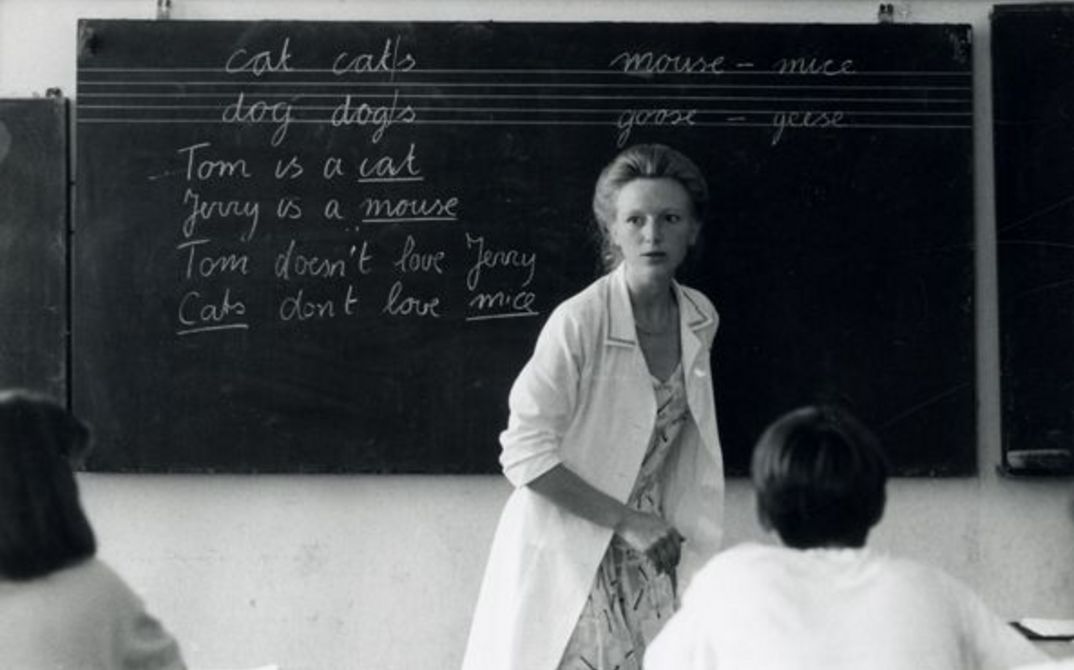A world-class director, auteur, creator of grand historical topographies, as well as intense landscapes of the soul: István Szabó (*1938, Budapest) is arguably the most famous director in Hungary, having made some 40 films. APA (Father, 1966), MEPHISTO (1981), ÉDES EMMA, DRÁGA BÖBE (Sweet Emma, Dear Böbe, 1991) and his most recent work THE DOOR (2012) have all marked the cinematography of his country, as well as European/international cinema generally – in the first instance as a singular voice in the art of film, but also as an exact observer and commentator of cultural, aesthetic and political developments, as well as a teacher. His films – the first shorts were made at the end of the 1950s – are united by a precise and sensitive approach to their protagonists in times of political and social upheaval. They are critical, empathetic studies of the consequences of the historical ruptures in Europe over the past 100 years on individual lives. However, the films always go beyond particular moments, bringing the human, moral and personal crystallizations – the fields of tension between power and resistance, identity and assimilation, art and politics – into the present. To kick off a series of international programs and retrospectives to celebrate the director’s birthday, we will be showing six films from his nuanced oeuvre, which ranges from concentrated Kammerspiel to huge expansive productions featuring star casts. We are pleased to welcome István Szabó himself to Arsenal on 2nd and 3rd February.
ÉDES EMMA, DRÁGA BÖBE – VÁZLATOK, AKTOK (Sweet Emma, Dear Böbe, Hungary 1991, 2.2., guest: Johanna ter Steege, István Szabó) Budapest, early 1990s, not long after the fall of communism. At the school where Emma (Johanna ter Steege) taught Russian for many years, the textbooks that she used are now burning. Suspected by students and their colleagues, Emma and her friend Böbe (Enikö Börcsök) start training to become English teachers instead - a painstaking undertaking. Emma struggles and seeks (emotional) support, which she in no way finds in her relationship with the fickle, opportunistic and more importantly married school headmaster. When Böbe is arrested on flimsy grounds, Emma's life also goes off kilter. The film's sub-heading is "Sketches, Nudes" - Szabó sketches confusing and harrowing vignettes of a struggle to survive that is material, social and moral.
TAKING SIDES (Taking Sides, G/F 2001, 3.2., guest: István Szabó) To choose a camp, take sides: the necessity and difficulty, the risks and traps of taking sides permeate this large-scale production. US Major Arnold (Harvey Keitel) arrives in the completely destroyed city of Berlin not long after the war (set design: Ken Adam) to investigate Wilhelm Furtwängler (Stellan Skarsgård), the former principal conductor of the Berlin Philharmonic and the Nazis’ model artist. The two face each other in a mercilessly intense interrogation scene: Arnold believes that the conductor’s arrangement with the Nazis is irrefutable evidence of his collaboration, while Furtwängler argues that his position as an artist exempts him from having to engage with politics.
MEPHISTO (Hungary/FRG 1981, 4.2.) In this adaptation of Klaus Mann’s eponymous novel, whose main character was based on Gustaf Gründgens, Szabó depicts the corruptibility of artists in the Nazi era. After Hitler takes power, the ambitious actor Hendrik Höfgen (Klaus Maria Brandauer), hitherto on the left, quickly reveals himself to be an opportunist seduced by the Nazis. He sacrifices his convictions, friends and feelings to obtain the post of director at the Prussian State Theater. He understands his personal failings during a ghostly finale in Berlin’s Olympiastadion. MEPHISTO won the Oscar for best foreign film in 1982.
APA (Father, Hungary 1967, 5. & 8.2.) Takó (András Bálint) lost his father - a doctor - towards the end of the war and grows up as a half-orphan. He compensates for the absence of his father by imagining and describing him as an unsoiled hero: a famous doctor, a courageous partisan, a distinctive fighter. As a student and with the help of a Jewish co-student whom he befriends, he learns more about his father’s real life and succeeds in accepting the truth. Interlacing realistic scenes with dream sequences, Szabó creates a psychological study about deformations in a dictatorship, but also demonstrates that he, a representative of Hungary’s younger generation, has a critical understanding both of himself and of history.
BIZALOM(Confidence, Hungary 1980, 6. & 8.2.) Towards the end of the Second World War, Katalin’s husband, who is a member of the resistance, is forced to go underground. Katalin too has to undertake measures to protect herself and adopts a new identity as the wife of a complete stranger. The ad hoc relationship is based on severity, distrust and fear - feelings that have no other space (literally) than the small room made available to the pair in the home of an older couple. An intensive Kammerspiel develops between two lonely and lost souls, whose denied past and barely stable present, seem to make impossible understanding, loyalty, love and their common foundation of trust.
THE DOOR(Hungary 2012, 7.2.) Hungary, 1960s: Emerenc (Helen Mirren), as headstrong as she is mysterious, keeps house for the novelist Magda (Martina Gedeck), who after years of censorship finally enjoys success. A cautious intimacy between the extremely different women develops slowly after tenderness and rejection are alternated. There is a limit to their intimacy however and that is the door to Emerenc’s small house which nobody is allowed to enter. When Emerenc has to leave her house, Magda is faced with a difficult question. A haunting Kammerspiel with two strong female characters of different generations and social background, and their struggle in the complicated relationship between intimacy and distance. (mg)
In conjunction with the Collegium Hungaricum Berlin und the European Film Academy.



